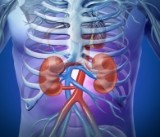
Increasing living kidney donation in the Netherlands
24 February 2016The Dutch Kidney Foundation and the Dutch Kidney Patient Association have launched a joint initiative to inform and support potential living kidney donors and kidney patients, with the overall aim to increase living kidney donation in the Netherlands.
A new website “Nierdonatie bij leven” (“living kidney donation”) has been launched on the 15th of January and a telephone number is now available for the public to exchange with a team of trained kidney doctors.
Additionally, the Dutch Parliament will discuss this month (February 2016) on a new legislation on donor registration, which could possibly lead to an increase in national rates for kidney donation in the Netherlands. The actual scheme for organ donation in the country is an opt-in system based on explicit consent since the entry into force of the Dutch Organ Donation Act in 1998. To implement the Act, the Donorregister was set up, managed by the Dutch Minister of Health, Welfare and Sport. It provides for four options when registering the decision: to give permission to use one’s tissues and organs for transplantation after death, not to give such permission, to leave the person’s next of kin decide or to leave a specific person decide. When citizens do not register their choice, relatives are asked. According to data released by Statistics Netherlands on the 5th of January 2016, around a quarter of the Dutch population aged 12 years old and over were registered as organ donors in 2015. 24 percent of the Dutch population gave explicit permission for their organs or tissues to be used after death. However, the Dutch Transplant Foundation highlighted that two-thirds of the families of deceased persons did not allow donation when there was no record of the deceased in the Donor Register.
The forthcoming discussions in the Dutch Parliament will consider the legislative proposal of the Democraten 66 party on the introduction of an Active Donor Registration (ADR) scheme. Under this model, each Dutch citizen of 18 years old and over would receive a letter asking them to register their choice to become a donor or not. In the absence of a reply, a follow-up letter would be sent. Citizens not registering would be automatically registered as organ donors, a registration that could be confirmed or changed at any time. According to the party, such a system would contribute to reduce donor shortage in the Netherlands, since it would imply that every citizen knows about donor registration, while ignorance rates are currently high in the country.
